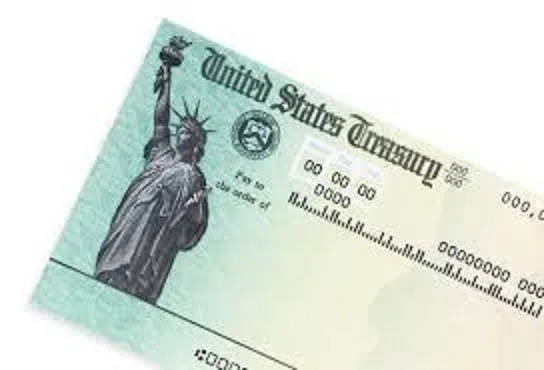
SIOUX FALLS, S.D. (KELO.com) –A second round of stimulus checks was announced in December by the IRS for most Americans, and for many, the money has already landed in their bank accounts. For others, the wait continues as the distribution of the refunds are still taking place. The Better Business Bureau (BBB) warns this is an ideal situation for potential scammers to take advantage of consumers. Watch out for the following signs.
Is that call or text a con or the real deal?
Previously, BBB Scam Tracker received numerous reports from people who were contacted through text messages, email, and phone calls about the new COVID-19 stimulus checks. BBB believes many of these same tactics may be used again.
Watch out for email or text messages instructing to click a link to “request benefit payments.” The link connects to an application prompting the entering of personal information in order to “make sure you are getting all the payments owed to you.” Beware! This “application” is really a way to phish for personal details and commit identity theft.
In a phone variation of the con, the scammer pretends to call from a government agency. The con artist insists on being paid immediately – or confirmation of personal information – before a stimulus check is sent. Other times, scammers claim additional funds are available or that the consumer can receive funds immediately once a small “processing fee” is paid with a pre-paid debit card. These are all red flags and should be reported to BBB Scam Tracker.
Tips to Spot a Government Imposter Scam:
- Stay calm. Resist the urge to act immediately, no matter how dramatic the story is. Scammers try to get people to act before thinking about the situation.
- Don’t reply directly. Don’t respond to unknown calls, texts, or emails. If you think the message may be real, find the government agencies’ contact information on the internet and contact them directly.
- Check for look-alikes. Research to see if the government agency or organization that contacted you actually exists. Scammers often make up names of agencies and/or grants.
- Do not pay any money for a “free” government grant or program. It is not really free if there is a fee involved. A real government agency will not ask for an advanced processing fee. Instead, find out if the agency is legitimate by checking grants.gov.
For more information:
Learn more about government grant scams in this BBB tip and for more information about scams related to the coronavirus, see BBB.org/coronavirus.





Comments